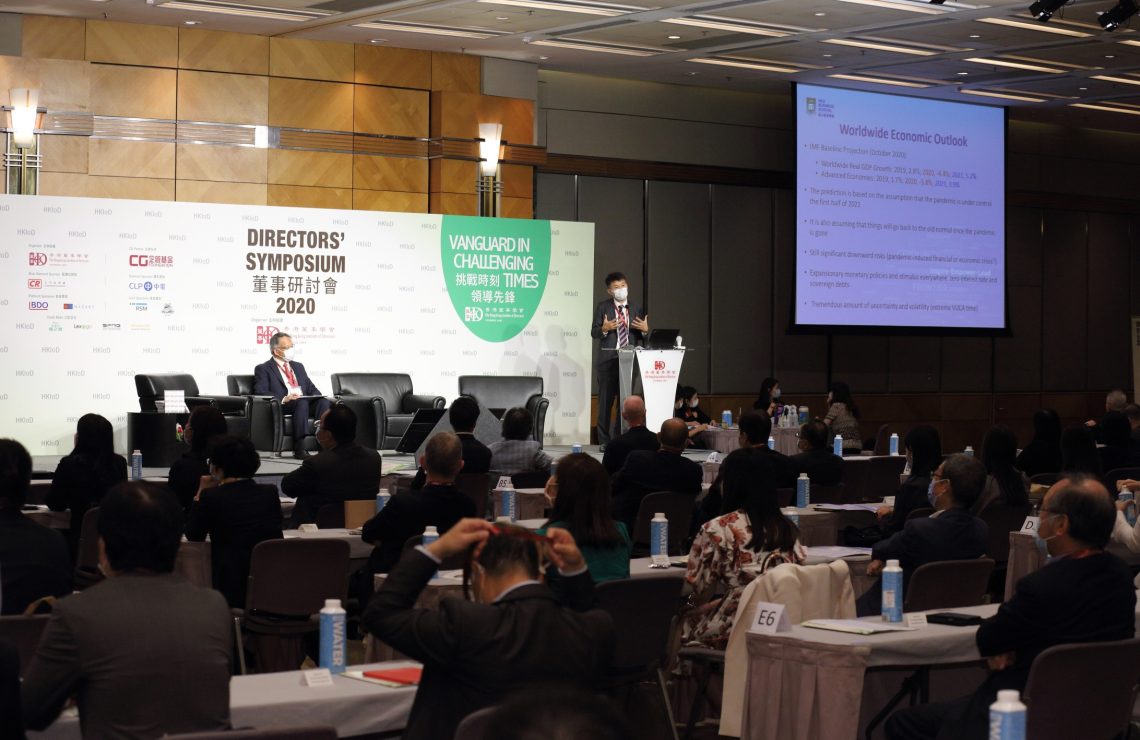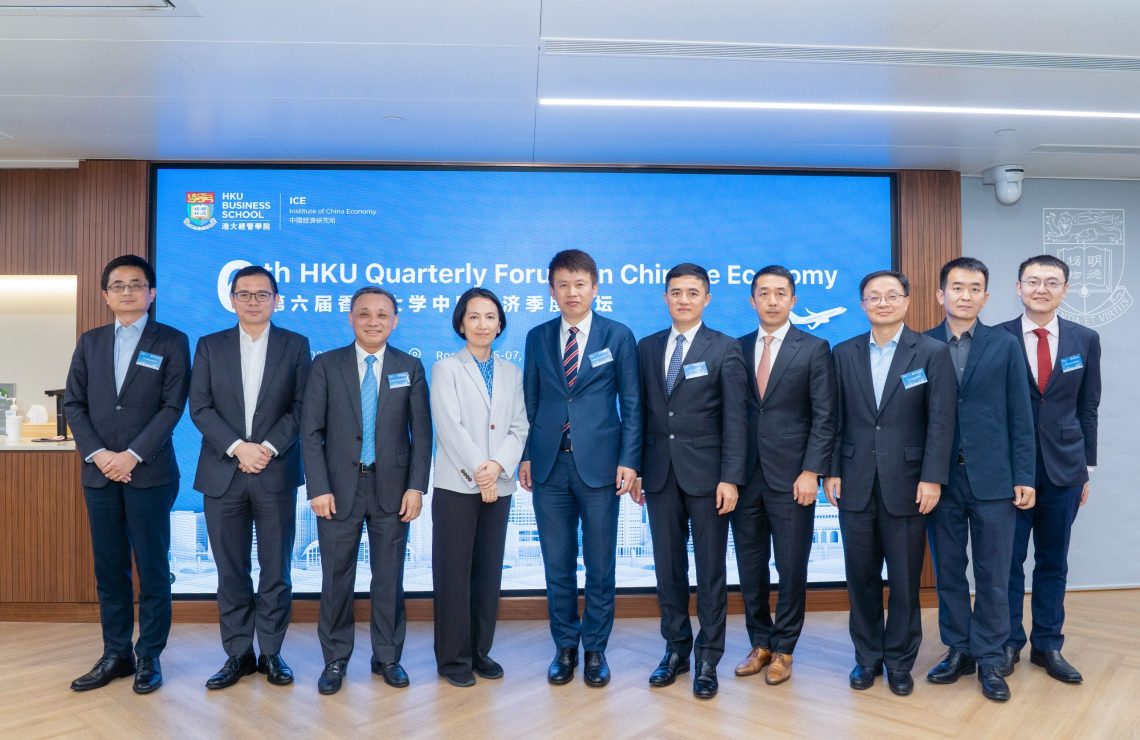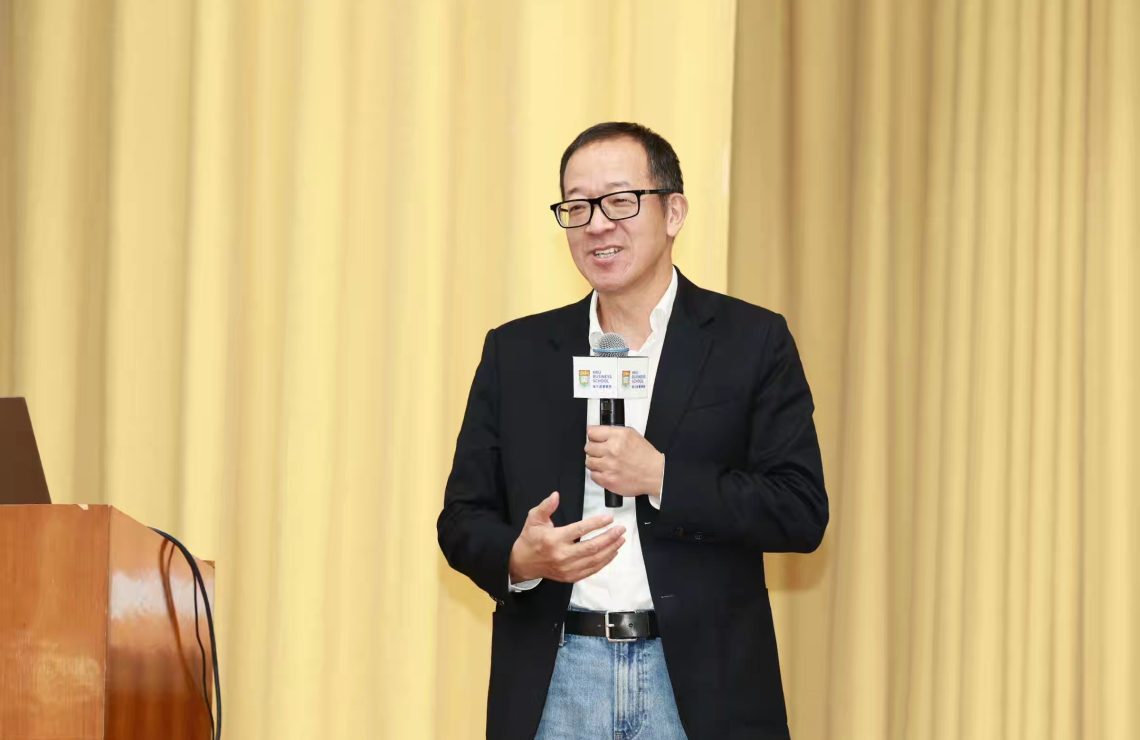
Silver Lining in the Storm – Driving An Economic Transformation to Boost the Prosperity of Hong Kong
2020 is a year full of challenges but not lack of opportunities for technologies related in finance and business to shine. It is also a year where corporate leadership and visionary management of directors put to the absolute test. Themed ‘Vanguard in Challenging Times’, the Director’s Symposium 2020 organised by The Hong Kong Institute of Directors had gathered over 200 directors and senior officers from diverse enterprises. A few of top industry leaders and business experts were invited to share their managerial insights on how to steer through the increasingly turbulent world. One of the guest speakers, Professor Hongbin Cai, Dean of HKU Business School, led a highlighted talk on an overview of economic outlook during the event.
Professor Cai believes that the global economy’s future is ultimately dependent on the duration of the COVID-19 pandemic, and the stability of individual economies prior the pandemic. Regarding to the second point, Professor Cai observes that the global economy has never fully recovered from the 2008 financial crises due to expansionary monetary policies and close-to-zero interest rates. These policies have wrought long term damages and malign sequelae to the global financial systems lasting hitherto. While excessive liquidity propelled asset prices in the global stock market, it also created a decade long of jobless growth worldwide, exacerbating income inequality on a global scale that pulled the trigger of deglobalisation.
In a world full of uncertainty and fear, at the center of its stage, Professor Cai sees the intensifying tension between the United States (US) and China. He believes that the US will continue to contain China regardless of the result of the US Election. Regarding the economic strength of the US, Professor Cai believes that it is supported by a strong microeconomic foundation. Research and Development of the US remains top notched, and its innovation industry is vigorous and booming. However, it is currently flanked by social crisis and recessive economic problems brought by zero interest rates and national debt. As the US economy is full of uncertainties, it is futile to predict its future. Professor Cai urges the audience to stay tuned to the US’ presidential election for better insights.
China on the other hand, is on better grounds. Not only it is the only major country manages to fully contain domestic spread of COVID-19, it is the only major economy that manages to have positive economic growth in 2020. However, Professor Cai calls for prudence as deglobalisation and the pandemic have caused a replacement effect. Countries around the world will attempt to relocate their entire supply chains or part of their supply chains overseas in order to diversify production risks. In addition, sanctions from the US may also dissuade foreign capital from landing in China.
To survive the new normal, China has come up with the idea of ‘Dual Circulations’. Professor Cai stresses that dual circulation is not seclusion. It still emphasises further opening-up of the economy and bolstering ties with other nations. But the balance will inevitably be tilting towards the domestic market. Against this backdrop, Professor Cai predicts that, in the upcoming 14th Five-Year Plan, the central government will stress more on cracking down speculation on real estates and manufacturing investments. On the other hand, it will require local governments to ponder new investment plans on technological innovations, while maintaining a delicate balance between growth and social welfare.
Professor Cai believes that ‘Dual Circulations’ could also benefit the Hong Kong economy. He observes the competitiveness of Hong Kong’s intermediary-based economy is being eroded by increasing deglobalisation and technological development worldwide, and its growth momentum has lost before the pandemic and social unrest. Therefore, Hong Kong must transform to a knowledge-based, innovation-driven economy and fully utilise its unique strengths to contribute in China’s external circulation. As Hong Kong has always managed to emerge stronger after surmounting an adversity, Professor Cai is positive that Hong Kong will eventually prevail.







